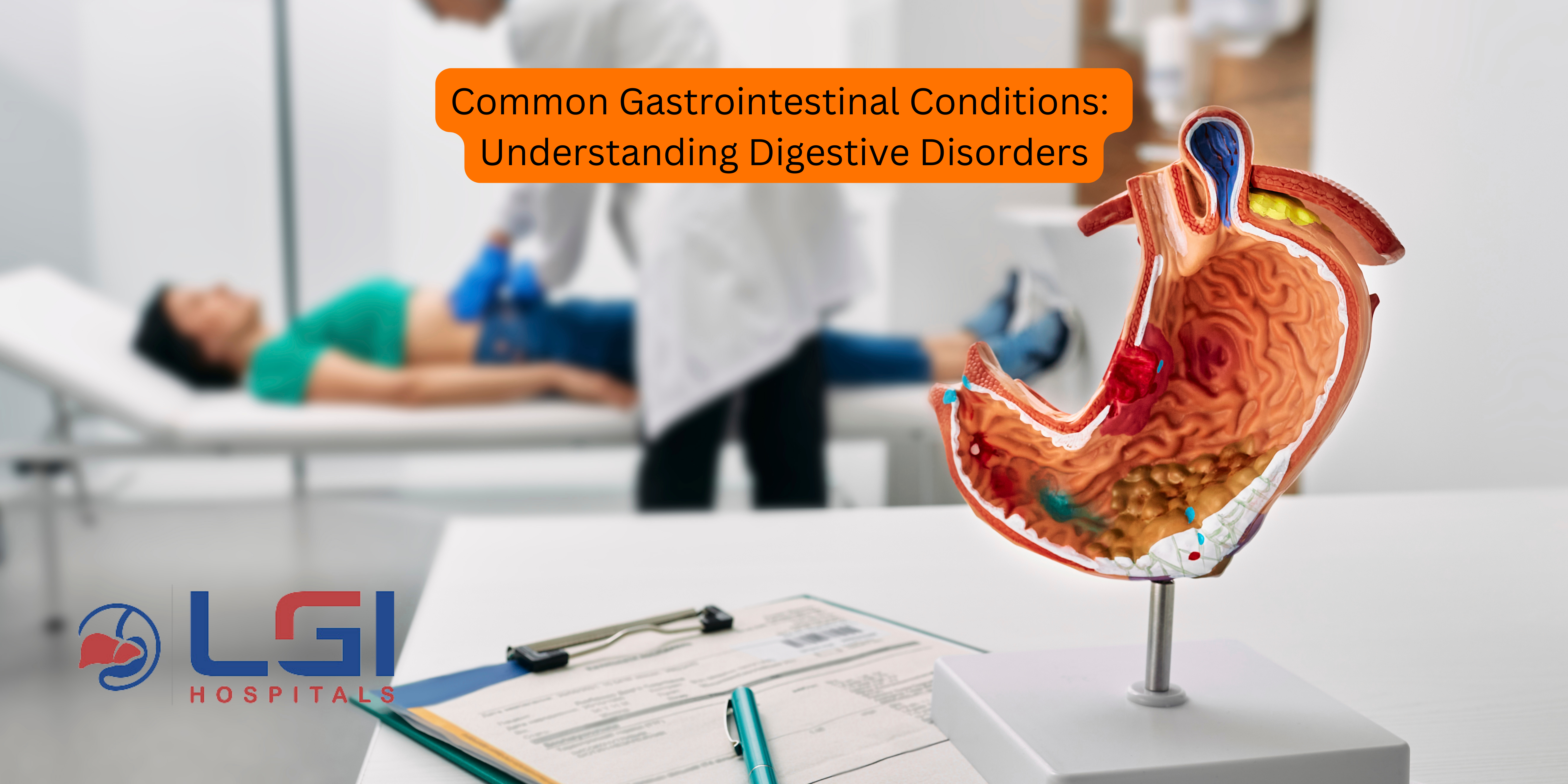Understanding Digestive Disorders
Introduction
The gastrointestinal (GI) system, also known as the digestive system, is vital to our overall health and well-being. It is responsible for digesting and absorbing nutrients, eliminating waste products, and maintaining a healthy gut microbiome. However, various factors can disrupt the GI system’s normal functioning, leading to gastrointestinal conditions. This blog post will explore some of the most common gastrointestinal disorders, including their causes, symptoms, diagnosis, and treatment options.
1. Gastroesophageal Reflux Disease (GERD)
GERD is a chronic condition characterized by the backward flow of stomach acid into the oesophagus. This occurs when the lower oesophagal sphincter, a muscular ring that typically prevents acid reflux, weakens or relaxes inappropriately. Common symptoms of GERD include heartburn, regurgitation, chest pain, difficulty swallowing, and chronic cough. Lifestyle modifications, such as avoiding trigger foods, losing weight, elevating the head of the bed, and medications, are typically used to manage GERD.
2. Peptic Ulcer Disease
Peptic ulcer disease is the formation of open sores or ulcers in the stomach lining, upper small intestine, or oesophagus. The most common cause of peptic ulcers is infection with the bacteria Helicobacter pylori. Other factors, such as long-term use of nonsteroidal anti-inflammatory drugs (NSAIDs), smoking, and excessive alcohol consumption, can also contribute to their development. Symptoms of peptic ulcers may include abdominal pain, bloating, nausea, vomiting, and weight loss. Treatment involves eradicating H. pylori infection (if present) and using medications to reduce stomach acid production and promote healing.
3. Inflammatory Bowel Disease (IBD)
Inflammatory bowel disease is an umbrella term for chronic inflammatory conditions that affect the digestive tract. The two main types of IBD are Crohn’s disease and ulcerative colitis. These conditions are characterized by inflammation and damage to the lining of the digestive tract, leading to symptoms such as abdominal pain, diarrhoea (often with blood), weight loss, fatigue, and malnutrition. The exact cause of IBD is unknown, but it is believed to involve an abnormal immune response triggered by genetic and environmental factors. Treatment aims to reduce inflammation, manage symptoms, and maintain remission through medications, lifestyle modifications, and, in some cases, surgery.
4. Irritable Bowel Syndrome (IBS)
Irritable bowel syndrome is a common functional disorder of the digestive system that affects the large intestine (colon). It is characterized by a combination of symptoms, including abdominal pain, bloating, gas, diarrhoea, and constipation. The exact cause of IBS is unclear, but it is believed to involve a combination of abnormal gut motility, increased sensitivity to pain, and disturbances in the gut-brain axis. Treatment focuses on symptom management, including dietary changes, stress reduction techniques, medications, and probiotics.
5. Gallstones
Gallstones are hardened deposits in the gallbladder, a small organ beneath the liver. They can range in size from tiny grains to large stones. Gallstones are typically composed of cholesterol or bilirubin, a pigment produced during the breakdown of red blood cells. When gallstones obstruct the bile ducts, they can cause symptoms such as abdominal pain (particularly after eating fatty foods), nausea, vomiting, and jaundice. Treatment options for gallstones depend on the severity of symptoms. They may include medications to dissolve the stones, surgical removal of the gallbladder (cholecystectomy), or nonsurgical techniques to break up or remove the rocks.
6. Gastrointestinal Cancers
Gastrointestinal cancers can affect any part of the digestive system, including the oesophagus, stomach, liver, pancreas, gallbladder, colon, and rectum. Common types of GI cancers include oesophagal cancer, gastric (stomach) cancer, liver cancer, pancreatic cancer, and colorectal cancer. Symptoms may vary depending on the location and stage of the tumour. Still, they can include unexplained weight loss, abdominal pain, changes in bowel habits, blood in stools, jaundice, and difficulty swallowing. Early detection through screening tests, such as colonoscopy, surgery, chemotherapy, radiation therapy, targeted therapy, and immunotherapy, are the primary treatment approaches for gastrointestinal cancers.
Diagnosis and Treatment
Diagnosing gastrointestinal conditions often involves a combination of medical history evaluation, physical examination, laboratory tests, imaging studies (e.g., endoscopy, colonoscopy, ultrasound, CT scan), and sometimes biopsies. Treatment options vary depending on the specific condition but may include medications, dietary modifications, lifestyle changes, surgical interventions, and supportive therapies. It is essential to consult with a gastroenterologist or healthcare professional, readily available at LGI Hospitals, Nagpur, for an accurate diagnosis and appropriate treatment.
Conclusion
Gastrointestinal conditions can significantly impact one’s quality of life and overall health. Understanding the common conditions that affect the digestive system, their causes, symptoms, and available treatment options is crucial for early detection, effective management, and preventing complications. If you are experiencing persistent gastrointestinal symptoms or concerns, seeking medical advice from a healthcare professional is essential. Early intervention and proper management can improve outcomes and quality of life. Get your checkup done today at LGI Hospitals, Nagpur.

